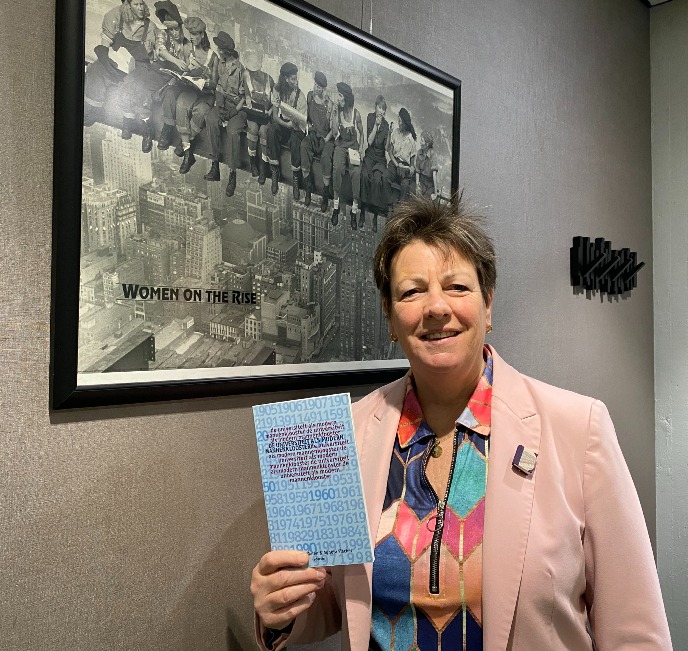Marjolein Nieboer on women emancipation in academia: Barbara van Balen en Agneta Fischer (1998), De universiteit als modern mannenklooster

In our new series I am what I read , UG staff reveal the literature that influenced their professional lives. This time: Marjolein Nieboer, director of the University of Groningen Library (UB).
Let me start with an excerpt from this book. Mind you, it is 1998: Dr Lieteke van Vucht Tijssen becomes a member of the Board of Utrecht University. When she is introduced to a member of the Utrecht city council, this one councillor looks to her left, to her right and over her. Then this councillor asks: ‘Where?’
In 1998, this was indicative of the invisibility of women at the top of Dutch universities. In that same year, at the age of 34, I was appointed deputy librarian of the UG. Shortly after, the newly appointed librarian of TU Delft came to visit. Maria Heijne was the first woman in the stronghold of UB directors, the leaders of an academic library. It was she who gave me this booklet during her visit to Groningen.
It is a collection of essays on the emancipatory inability of Dutch academia. It contains adaptations of lectures delivered at the University of Amsterdam at the symposium ‘Women and university after a hundred years’. It is not very uplifting. I find the statistics staggering. The Netherlands is still at the bottom of the ranking of women as academic staff at universities in 1998. If you look at the percentage of female professors, in that year the Netherlands, together with Turkey, also hangs at the bottom of the list with two per cent, which is hardly better than at the beginning of the last century. Anno 2025, we are at 30 per cent.
I read this volume of iniquity of women's empowerment in academia with great interest. It prompted me to join the university's emancipation affairs committee (UCE). Time for action! So around 2000, we produced an overview of leadership positions within the UG, with the appealing title: Wie bestiert de RUG (Who runs the UG). And it motivates me greatly, the UB has not had a woman at the top in four centuries. In 2010, the UG appointed its first female (24th) head librarian. And only in 2019 the first female rector was appointed.
After reading the volume, I understood that the university, as a classical institution, is not substantially different in terms of organization from its thirteenth-century archetype, the male monastery. This manifests itself not only in innocent ceremonial acts and the togas, but also in a culture that revolves around individual achievement and competition. Men feel more at home there than women, I read in the volume.
In the administrative consultation circuit, I find that I am also part of the performance and competition culture. The book De universiteit als modern mannenklooster (The University as a modern Monastery of Men) prompted me to join others in structurally renewing the organizational culture. As a member of the informal group Sleutelvrouwen (Key women), we have been working on this for ten years now: more women in key positions. However, appointing women to such positions does not guarantee that we will make the university more liveable for women. We desperately need our men here. Together with them, we can keep women (and men) committed to the university.
Marjolein Nieboer is director of the University of Groningen Library and librarian of the UG.
| Last modified: | 28 January 2025 12.42 p.m. |
More news
-
24 March 2025
UG 28th in World's Most International Universities 2025 rankings
The University of Groningen has been ranked 28th in the World's Most International Universities 2025 by Times Higher Education. With this, the UG leaves behind institutions such as MIT and Harvard. The 28th place marks an increase of five places: in...
-
05 March 2025
Women in Science
The UG celebrates International Women’s Day with a special photo series: Women in Science.
-
16 December 2024
Jouke de Vries: ‘The University will have to be flexible’
2024 was a festive year for the University of Groningen. In this podcast, Jouke de Vries, the chair of the Executive Board, looks back.

